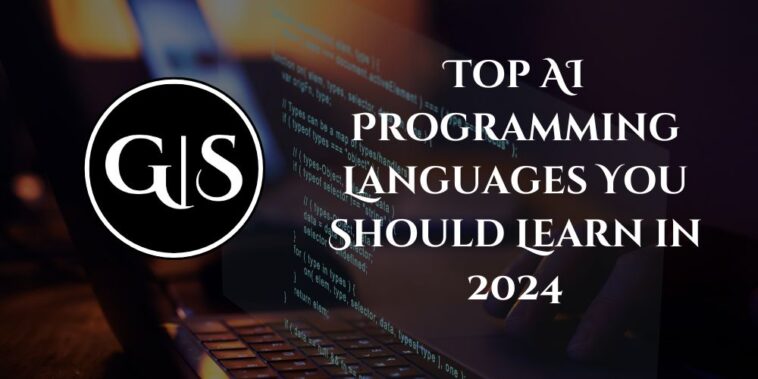Introduction
Artificial Intelligence (AI) is no longer a distant dream; it’s a powerful force that’s shaping our present and future. Imagine being part of this incredible journey, where machines think, learn, and evolve, transforming industries and lives. But to be a part of this revolution, you need the right tools, and one of the most crucial tools is the programming language you choose. So, let’s dive into the world of AI programming languages and discover which ones you should learn in 2024 to stay ahead of the curve.
Understanding AI Programming Languages
When we talk about AI programming languages, we’re referring to the coding languages specifically designed or adapted to develop AI models and applications. These languages are the backbone of AI software development, enabling us to create algorithms that can learn, reason, and make decisions. Unlike general-purpose programming languages, AI languages often come with libraries and frameworks tailored to handle the complexities of AI tasks.

Criteria for Choosing an AI Programming Language
Choosing the right AI programming language is like picking the perfect companion for a long journey. You want a language that’s versatile, easy to learn, and supported by a vibrant community. Additionally, it’s crucial to consider the industry demand for the language and its future prospects. After all, you’re not just learning for today; you’re building skills for the future.
Top AI Programming Languages in 2024
Python
If AI programming languages were a concert, Python would be the headliner. Its simplicity and readability make it the go-to language for both beginners and seasoned professionals. But what truly sets Python apart is its rich ecosystem of AI libraries and frameworks. Libraries like TensorFlow, PyTorch, and Scikit-learn have made Python indispensable in the AI community. Whether you’re developing deep learning models or engaging in data analysis, Python has got you covered.

R
Language “R” might not be as popular as Python, but when it comes to data analysis and statistical computing, it’s in a league of its own. It is very excellent at AI projects that involve extensive data manipulation; any data scientist’s favorite. From caret to randomForest, it has all the packages comprehensive in their collection to build AI models. If your AI journey is data-driven, R is a language you shouldn’t overlook.

Java
Java has been around for decades, and it’s not going anywhere. Its robustness and portability make it a reliable choice for AI development, especially in large-scale applications. Java’s scalability is one of its biggest strengths, allowing it to handle complex AI algorithms efficiently. Moreover, Java’s community is vast, providing ample resources and support, making it a strong contender for anyone looking to dive into AI.

Julia
Julia is the new kid on the block, but it’s making waves in the AI community. Known for its speed and performance, Julia is particularly well-suited for scientific computing and numerical analysis. Its ability to handle high-level computations quickly makes it a preferred choice for AI researchers. If you’re interested in pushing the boundaries of AI with cutting-edge performance, Julia is the language to explore.
C++
The language C++ might seem like an old-school choice, but in the realm of AI, it’s a powerhouse. It is the go-to language for high-performance AI applications, especially in real-time systems. Its control over system resources and memory management makes it ideal for developing AI software that needs to be fast and efficient. If you’re working on projects where performance is critical, C++ is the language to master.
Emerging AI Programming Languages
Rust
Rust is gaining traction in the AI world, especially in safety-critical systems where reliability and performance are paramount. Rust’s memory safety features reduce bugs and make the development of AI applications more secure. As AI continues to permeate areas like autonomous vehicles and healthcare, Rust’s role is expected to grow.
Go
Go, also known as Golang, is another language that’s finding its place in AI, particularly in cloud computing and distributed systems. Go’s simplicity and efficiency make it an attractive choice for AI applications that need to be scalable and easy to maintain. If you’re interested in cloud-based AI solutions, Go is a language worth learning.

Learning AI Programming Languages
Starting your journey in AI programming can feel overwhelming, but with the right approach, it becomes an exciting adventure. Begin with Python or R if you’re a beginner, as these languages offer extensive resources and are widely used in the industry. Online courses, coding bootcamps, and AI-focused platforms like Coursera and Udacity provide excellent pathways to mastering these languages. Practice is key, so work on small projects to build your confidence and understanding.
The Future of AI Programming Languages
As we look towards 2024 and beyond, the landscape of AI programming languages is set to evolve. Languages like Julia and Rust are expected to gain more traction, while Python will likely continue its dominance due to its versatility and strong community support. Keeping an eye on emerging languages and trends will ensure that you remain at the forefront of AI development.
The Role of AI Programming Languages in Latest Tech Trends
AI programming languages are not just tools; they are the drivers of innovation in the tech world. From automating tasks to creating intelligent systems, these languages are at the heart of the latest tech trends. Whether it’s AI-assisted software development or the integration of AI with the Internet of Things (IoT), the languages you choose will determine how effectively you can contribute to these advancements.

Conclusion
In the ever-evolving world of AI, staying updated with the right programming languages is crucial. Python, R, Java, Julia, and C++ are among the top AI programming languages you should consider learning in 2024. Each of these languages has its unique strengths, and your choice should align with your career goals and the type of AI projects you want to work on. Embrace the challenge, start learning, and become a part of the AI revolution.
FAQs
Which programming language should I learn in 2024?
- Python is highly recommended for beginners due to its simplicity and extensive use in the AI industry. However, the best language for you depends on your specific goals and interests in AI.
Which programming language is the future of AI?
- Python is currently leading, but languages like Julia and Rust are gaining popularity for their performance and safety features, making them strong contenders for the future of AI.
What is the best language to learn for AI?
- Python is considered the best language for AI due to its vast libraries and frameworks. However, if you’re focusing on high-performance computing, C++ or Julia might be better suited.
What are the most in-demand software skills in 2024?
- AI programming, machine learning, and data analysis are the top-desired software skills. Proficiency in Python, Java, and R will be highly valued.
Is Python in-demand in 2024?
- Yes, Python remains in high demand in 2024, especially in fields like AI, machine learning, and data science. Its versatility and ease of learning continue to make it a popular choice.
At Gizmo Sprout, we’re dedicated to exploring and explaining the latest trends in technology. Stay tuned for more insightful articles on AI, BI, and other cutting-edge technologies.


2 Comments
Leave a ReplyOne Ping
Pingback:How Technology Companies in Philadelphia Drive Innovation – Tk Creationz